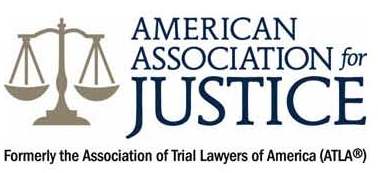Injury Law Legal Definitions
Important Injury Law Legal Terms and DefinitionsUtah Injury Law Legal Definitions
Personal Injury Attorneys Serving clients from Lehi to Santaquin, Utah.
Understanding your legal position starts with understanding some legal definitions. Personal Injury Law uses words and terms that many people have never needed to learn. Here’s a short list of words and definitions that may help you feel more comfortable and confident when discussing your case.
Need More Information? Call today and speak to a personal injury attorney now (801) 441-2881
ACCIDENT
An unexpected fortuitous event, unforeseen and unintended, not under the control of an insured and resulting in a loss.
ACT OF GOD
A flood, earthquake or other accident or event that is without any human intervention and that could not have been prevented by reasonable care or foresight, but is the result of natural causes. (A snowstorm is an Act of God; driving in a snowstorm is an act of man.)
ACTUAL CASH VALUE
The sum of money required to pay for damages or lost property, computed on the basis of replacement value less its depreciation by obsolescence or general wear.
ADJUSTER
An individual representing the insurance company and acting for the company in working on agreements as to the amount of loss and the liability of the company in same.
AGENTS (INSURANCE)
Two types of agents sell insurance: (1) Independent Agents are self-employed business people who typically represent more than one insurance company and are paid on a commission basis; and (2) Exclusive Agents represent only one insurance company and may be salaried or work on a commission basis.
CLAIM (MEDICAL OR INSURANCE)
(1) A formal request for payment of a loss under an insurance contract or bond; (2) The actual amount of the final settlement.
CLAIMANT
One who seeks reimbursement for loss under the terms and conditions of the insurance contract.
CONTRIBUTION
The term relates to circumstances where more than one party covers the risk. Each party is deemed to be liable for his proportion of the loss. If the Assured recovers in full from one insurer, that insurer is entitled to recover from the other insurer for that part of the loss which should have been paid by the latter.
DECLARATION PAGE
That page of the insurance policy which lists the insurance company, its addresses, name of the policyholder, starting and ending dates of coverage, and the actual coverage given in the contract, including the locations and amounts.
DEDUCTIBLE
The amount of loss paid by the policyholder before the insurance policy benefits become payable.
GOOD FAITH
A basic principle of insurance. The Assured and his broker must disclose and truly represent every material circumstance to the Underwriter before acceptance of the risk. A breach of good faith entitles the Underwriter to avoid the contract. (Proposed changes in law may affect this definition.)
HOLD-HARMLESS AGREEMENT
A contractual arrangement whereby one party assumes the liability inherent in a situation, thereby relieving the other party of responsibility. Such agreements are typically found in contracts like leases. A typical lease may provide that the lessee must “hold harmless” the lessor for any liability from accidents arising out of the premises.
INSURED
The person whose risk is transferred and shared; the party to an insurance agreement whom the insurer agrees to indemnify for losses, provide benefits for, or render services to.
INSURER
The company or group offering protection through the sale of an insurance policy to an insured; the party to an insurance agreement who undertakes to indemnify for losses, provide pecuniary benefits, or render services.
LIABILITY INSURANCE
That insurance that pays and renders service on behalf of an insured for loss arising out of his responsibility, due to negligence, to others imposed by law or assumed by contract.
LIABILITY LIMITS
The sum or sums beyond which a liability insurance company does not protect the insured on a liability policy.
LIEN
A word that indicates an encumbrance on property, either for discharge of a duty or the payment of a debt. When a lien exists, the conditions attaching to the issue of an insurance contract require that it be disclosed to the insurance company.
PERSONAL INJURY PROTECTION
The formal name usually given to no-fault benefits in states that have enacted mandatory or optional no-fault automobile insurance coverage. PIP usually includes benefits for medical expenses, loss of work income, essential services, accidental death and funeral expenses.
PROOF OF LOSS
A statement made to the insurance company under oath setting out the basis of an insured’s claim under the insurance policy.
PROXIMATE CAUSE
The immediate and effective cause of loss or damage. It is an unbroken chain of cause and effect between the occurrence of an insured peril or a negligent act and resulting injury or damage.
SUBROGATION
The legal process by which an insurance company seeks from a third party who may have caused the loss, recovery of the amount paid to the insured.
UNINSURED MOTORIST COVERAGE
Endorsement to a personal automobile policy that covers an insured involved in a collision with a driver who does not have liability insurance.

- Free confidential case reviews
- Free in home case reviews for clients that can not come to the office.
- Serving clients throughout the entire state of Utah.
- Offices in Lehi and Santaquin, Utah.
- Experienced trial lawyers
- Successfully accomplished thousands of verdicts and settlements
- Licensed Clinical Social Worker (LCSW) on staff
